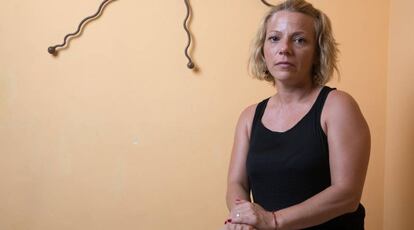Spanish court investigates Bayer for Essure contraceptive
Women say the device caused constant hemorrhaging and led to loss of their reproductive organs

Spain’s High Court, the Audiencia Nacional, has opened criminal proceedings against German drugmaker Bayer, the Spanish Gynecology Society and the Spanish Medicine Agency (AEMPS) after receiving a complaint that the contraceptive commercialized as Essure caused serious damage to women’s health.
In view of the “possible existence of a criminal offense,” Judge Carmen Lamela has sent the case to public prosecutors for review.
Sold by Bayer, Essure is a permanent birth control implant that is surgically placed into a woman’s Fallopian tubes. The metal coil causes fibrosis, which acts as barrier to stop sperm from reaching the ovaries.
Bayer is facing nearly 16,000 lawsuits over Essure in the US
The private criminal prosecution was initiated in early July by the Association of Essure Victims on behalf of 30 women, alleging public health crimes. This group argues that women were deliberately not told about the health risks of the product. According to the lawyers, “the patients were never properly informed about the possible complications related to the product that could affect their health. This is an intentional omission.” The private prosecution also outlines its “suspicions” that the Spanish Gynecology Society promoted the contraceptive because one of its top officials had “a relationship” with Bayer.
The women say Essure caused continuous pain, hemorrhaging, vomiting, diarrhea, hair and tooth loss and ripping of the uterus and Fallopian tubes. “They lost their reproductive organs,” says lawyer Francisco Almodóvar. The women who lost their uterus were left “completely sterile” while those who had their Fallopian tubes removed can only get pregnant via in vitro insemination.
“For five years my life was terrible,” says Cristina Sánchez, who was given the permanent contraceptive in 2010. “From the moment I was let out of the hospital, I began to have constant hemorrhaging.” According to the 38-year-old, by the time she had the device removed in 2015 her pelvis was “full of pus.”
The mother of two was implanted with the device after going to hospital to have her Fallopian tubes tied. “They told me this was more efficient,” she explains, adding that she was never told about the possible health risks. “Information never reached the women who were advised to use this method,” the lawyers argue. Sánchez also says that the doctors were unsympathetic to her complaints. “They treated me like I was crazy. They said I was making things up.”
From the moment I was let out of the hospital, I began to have constant hemorrhaging Essure patient Cristina Sánchez
The case also includes testimony from doctors who say Essure was introduced too quickly into the market and that the drug “was approved with fewer requirements than usual.”
Bayer, one of the most powerful pharmaceutical companies in the world, has gradually taken Essure off the global market. Last year, the company stopped distribution in Spain but argued the decision was not related to complaints over its safety. In a press release published in September 2017, Bayer maintained the move was for “commercial reasons,” arguing demand for the product in Spain had “dropped dramatically.”
“Bayer wants to restate that its decision is not related to questions over the security or quality of the product which continues to have a favorable risk-benefit profile in its scientific evaluation.”
Bayer also recently stopped selling the contraceptive in the United States, where it faces nearly 16,000 lawsuits for causing serious injuries and even death, according to a report in The New York Times.
English version by Melissa Kitson.
Tu suscripción se está usando en otro dispositivo
¿Quieres añadir otro usuario a tu suscripción?
Si continúas leyendo en este dispositivo, no se podrá leer en el otro.
FlechaTu suscripción se está usando en otro dispositivo y solo puedes acceder a EL PAÍS desde un dispositivo a la vez.
Si quieres compartir tu cuenta, cambia tu suscripción a la modalidad Premium, así podrás añadir otro usuario. Cada uno accederá con su propia cuenta de email, lo que os permitirá personalizar vuestra experiencia en EL PAÍS.
¿Tienes una suscripción de empresa? Accede aquí para contratar más cuentas.
En el caso de no saber quién está usando tu cuenta, te recomendamos cambiar tu contraseña aquí.
Si decides continuar compartiendo tu cuenta, este mensaje se mostrará en tu dispositivo y en el de la otra persona que está usando tu cuenta de forma indefinida, afectando a tu experiencia de lectura. Puedes consultar aquí los términos y condiciones de la suscripción digital.









































